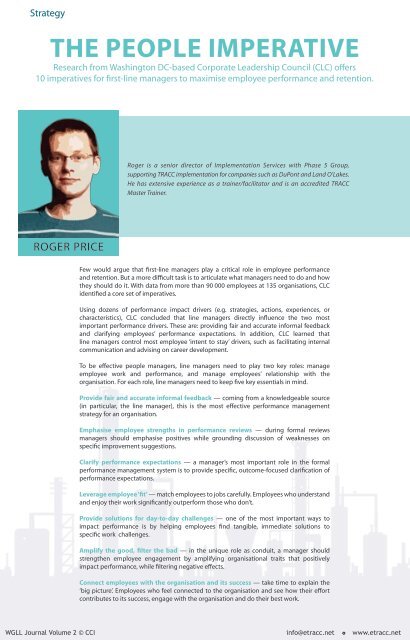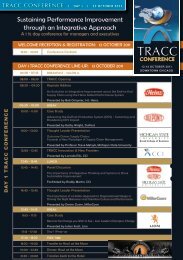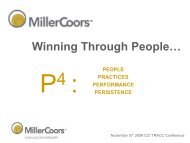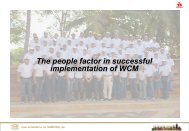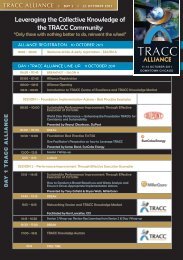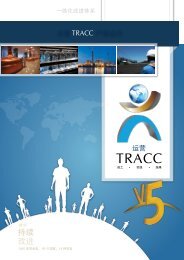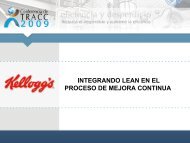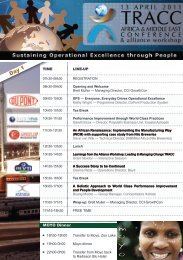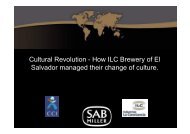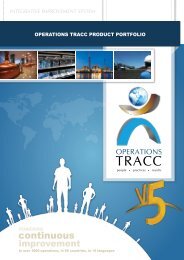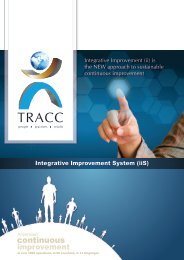e - TRACC
e - TRACC
e - TRACC
- No tags were found...
You also want an ePaper? Increase the reach of your titles
YUMPU automatically turns print PDFs into web optimized ePapers that Google loves.
StrategyTHE PEOPLE IMPERATIVEResearch from Washington DC-based Corporate Leadership Council (CLC) offers10 imperatives for first-line managers to maximise employee performance and retention.Roger is a senior director of Implementation Services with Phase 5 Group,supporting <strong>TRACC</strong> implementation for companies such as DuPont and Land O’Lakes.He has extensive experience as a trainer/facilitator and is an accredited <strong>TRACC</strong>Master Trainer.ROGER PRICEFew would argue that first-line managers play a critical role in employee performanceand retention. But a more difficult task is to articulate what managers need to do and howthey should do it. With data from more than 90 000 employees at 135 organisations, CLCidentified a core set of imperatives.Using dozens of performance impact drivers (e.g. strategies, actions, experiences, orcharacteristics), CLC concluded that line managers directly influence the two mostimportant performance drivers. These are: providing fair and accurate informal feedbackand clarifying employees’ performance expectations. In addition, CLC learned thatline managers control most employee ‘intent to stay’ drivers, such as facilitating internalcommunication and advising on career development.To be effective people managers, line managers need to play two key roles: manageemployee work and performance, and manage employees’ relationship with theorganisation. For each role, line managers need to keep five key essentials in mind.Provide fair and accurate informal feedback — coming from a knowledgeable source(in particular, the line manager), this is the most effective performance managementstrategy for an organisation.Emphasise employee strengths in performance reviews — during formal reviewsmanagers should emphasise positives while grounding discussion of weaknesses onspecific improvement suggestions.Clarify performance expectations — a manager’s most important role in the formalperformance management system is to provide specific, outcome-focused clarification ofperformance expectations.Leverage employee ‘fit’ — match employees to jobs carefully. Employees who understandand enjoy their work significantly outperform those who don’t.Provide solutions for day-to-day challenges — one of the most important ways toimpact performance is by helping employees find tangible, immediate solutions tospecific work challenges.Amplify the good, filter the bad — in the unique role as conduit, a manager shouldstrengthen employee engagement by amplifying organisational traits that positivelyimpact performance, while filtering negative effects.Connect employees with the organisation and its success — take time to explain the‘big picture’. Employees who feel connected to the organisation and see how their effortcontributes to its success, engage with the organisation and do their best work.WGLL Journal Volume 2 © CCI info@etracc.net www.etracc.net


